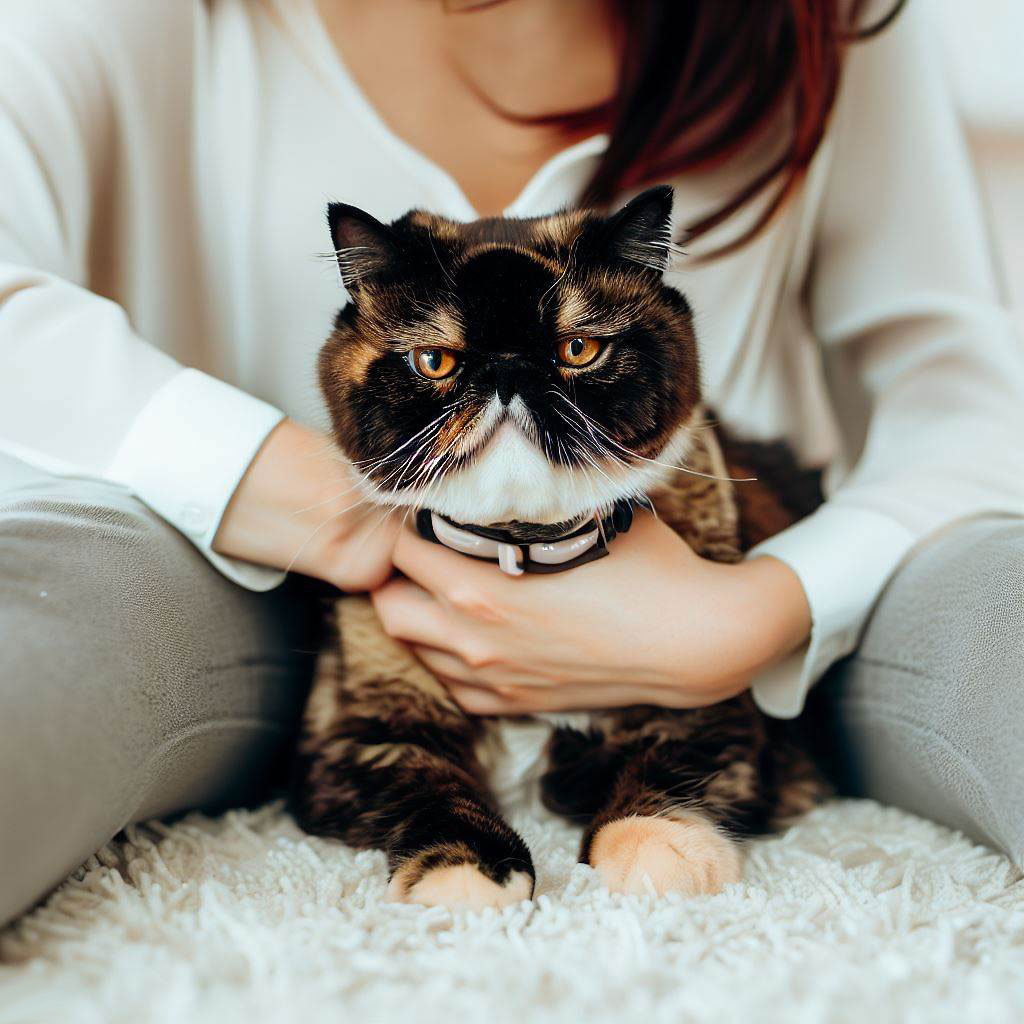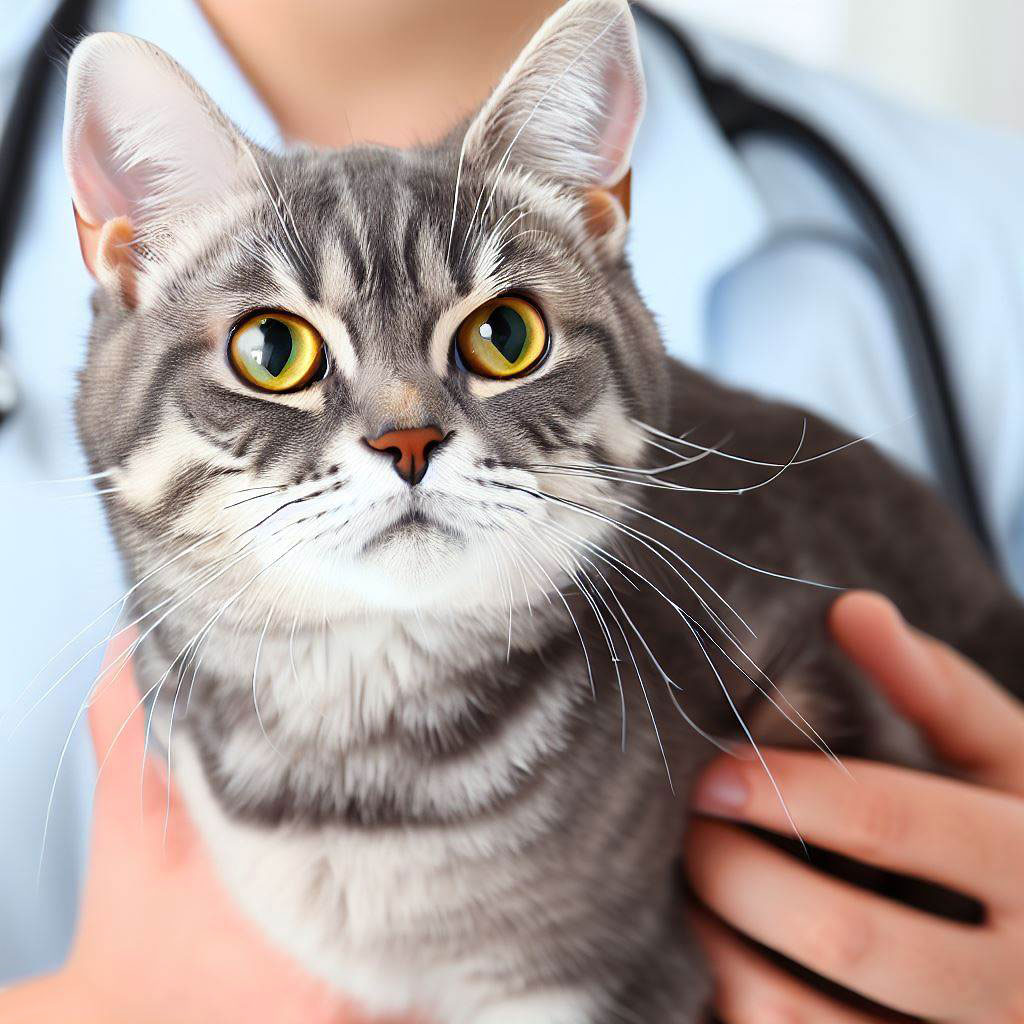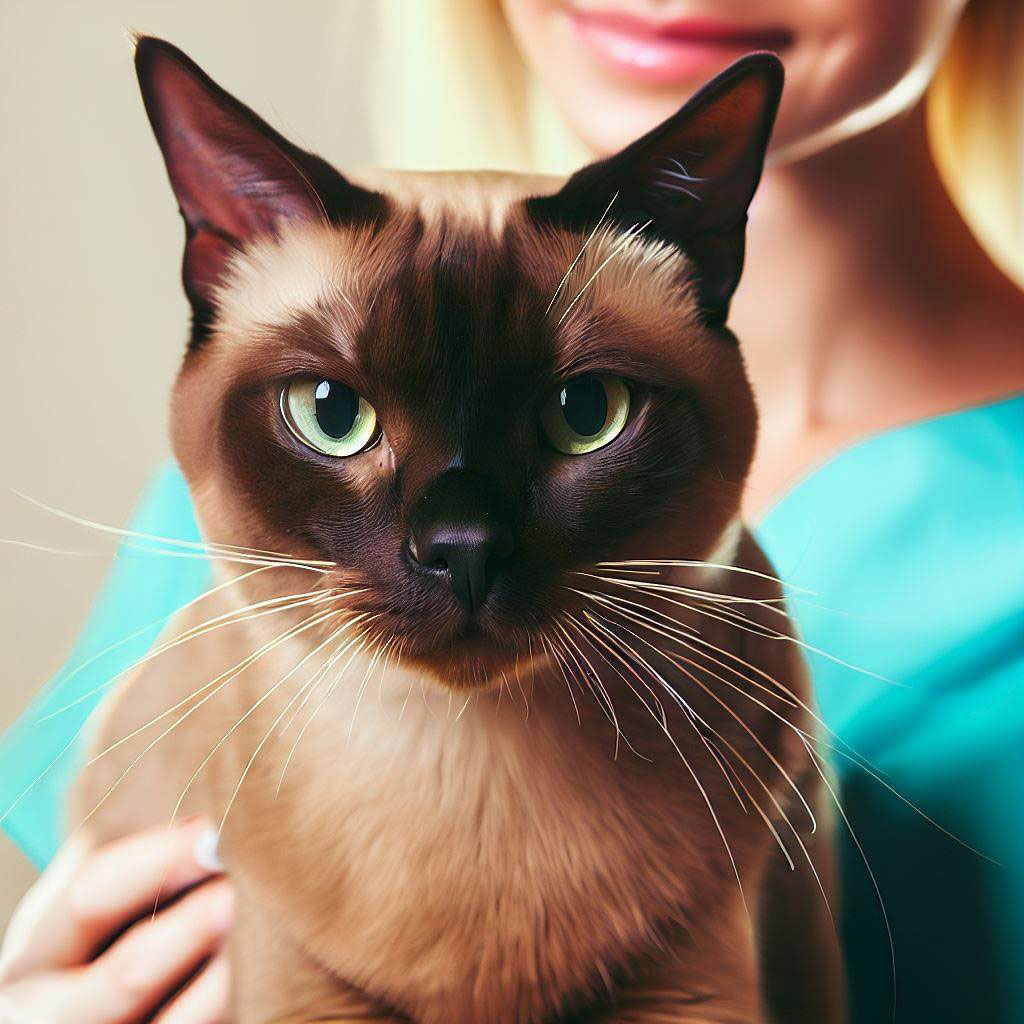Can Cats Get Colds?
Can cats get colds? Yes they can! Dive into feline health, discover symptoms, treatments, and prevention to keep your furry friend in top shape.
Table of Contents
Introduction
As a dedicated cat owner, you’ve likely come across a myriad of pet health misconceptions that float around in casual conversations, online forums, and even some misinformed articles. One commonly debated question is, “can cats get colds?” This might leave you wondering if Fluffy’s sneeze is a mere quirk or a sign of something more concerning.
Brief on common pet health misconceptions.
While we humans often brush off a sneeze or sniffle as nothing more than a slight nuisance, the health indications for our feline friends can be different. Many believe that since humans get colds, cats must surely get them too. However, it’s essential to differentiate between human illnesses and what might ail our cats.
Relevance of understanding feline health issues.
Every cat owner needs to delve deeper into the specifics of feline health. Cats possess unique physiology, making them susceptible to a range of illnesses that may not always manifest in the same way as human ailments. A simple sneeze, rather than being an equivalent of a human cold, could be indicative of an upper respiratory infection in cats.
Gaining accurate knowledge about these distinctions empowers you to provide better care for your feline friend. It ensures that you don’t overlook potential symptoms under the guise of common misconceptions. And when questions like “can cats get colds” arise, you’ll be better equipped to differentiate between myth and fact, ensuring your pet receives timely and appropriate care.
Can Cats Catch A Cold?
Every cat lover, at some point, has likely been faced with their furry friend sneezing or looking a tad under the weather. It leads to the inevitable question: “Can cats get colds?”
In direct answer to this query, yes, cats can experience symptoms that closely mirror those of the common cold in humans. However, it’s essential to distinguish between what we understand as a “cold” and the ailments cats experience.
A straight answer to the primary question: “Can cats get colds?”
When you, as a cat owner, ask, “Can cats get colds?”, you’re likely referring to the myriad of symptoms like sneezing, coughing, or watery eyes. In this context, cats do indeed get “colds.” But, the underlying causes and potential implications for felines differ significantly from human colds.
Differentiating between human colds and feline upper respiratory infections (URI)
For us humans, colds are usually a minor inconvenience, often caused by rhinoviruses, and they typically resolve on their own. However, when it comes to our feline companions, their version of the “cold” is more accurately termed as an Upper Respiratory Infection (URI).
While symptoms between human colds and feline URIs might seem similar, the causative agents and the disease progression can be quite different. Two primary culprits often cause URIs in cats: the Feline Herpesvirus (FeHV-1) and the Feline Calicivirus (FCV). Unlike human cold viruses that are often self-limiting, these feline viruses can sometimes lead to severe complications if not treated appropriately.
It’s also worth noting that cats cannot catch colds from humans, and vice versa. The viruses that cause colds in each species are specific to that species. So, the next time your cat sneezes after you’ve had a bout of sniffles, rest assured that you didn’t pass your cold onto them.
URIs in cats can be highly contagious among other cats, especially in environments where multiple cats cohabit, such as shelters or multi-cat households. Hence, understanding and recognizing the difference between a simple sneeze and a potential URI becomes crucial for every cat owner. Early detection and intervention can make all the difference in ensuring the health and well-being of your feline friend.
Awareness is always the first step. By acknowledging and understanding the nuances of the question, “Can cats get colds?”, you place yourself in a better position to provide timely care and attention to your beloved pet. Knowledge, paired with observation and prompt action, ensures that your cat remains healthy and happy for years to come.
Causes of Feline Upper Respiratory Infections (URIs)
To provide the best care for our feline companions, it’s crucial to delve into the causes behind these URIs.
Common viruses: Feline herpesvirus (FHV-1) and Feline calicivirus (FCV)
Distinguishing the culprits behind these infections is the first step to understanding their severity and implications. Two primary viruses are frequently responsible for the lion’s share of URIs in cats: Feline herpesvirus (FHV-1) and Feline calicivirus (FCV).
FHV-1: Often likened to the herpes virus in humans, FHV-1 is a stubborn and pervasive virus. Once a cat gets infected with it, the virus remains latent in their body for life. This means while the primary infection might be treated and symptoms alleviated, the virus can reactivate during periods of stress, causing flare-ups.
FCV: Feline calicivirus is another widespread cause of respiratory issues in cats. Beyond the standard URI symptoms, FCV might also result in ulcers in a cat’s mouth or on their tongue. It’s a resilient virus, able to survive on surfaces for up to a month, awaiting its next host.
How cats get exposed and the contagious nature of URIs
Now that we’ve identified the viruses, the question arises: How do cats get exposed to them? Understanding the transmission routes can offer insights into preventive measures.
Both FHV-1 and FCV are highly contagious among cats. Direct contact with an infected feline is the most common way for a cat to contract these viruses. This includes nose-to-nose contact, grooming, or even sharing litter boxes and food dishes. But it doesn’t end there. These viruses can also spread through the air, especially when an infected cat sneezes, releasing virus-laden droplets into the environment.
If you’re bringing home a new cat, especially from environments with multiple cats like shelters or breeders, it’s wise to consider a quarantine period. This prevents any potential spread of URIs to other cats in the household.
Inanimate objects, often called fomites, such as toys, bedding, or your own hands and clothes, can also harbor these viruses. If you’ve petted an infected cat, the virus can transfer to your hands, potentially exposing your own cat at home. Regular hand-washing and disinfection play pivotal roles in breaking this chain of transmission.
For the diligent cat owner who wonders, “Can cats get colds?” it’s essential to grasp that while the symptoms might mirror a simple cold, the causes and contagious nature of feline URIs demand careful attention and proactive measures.

Symptoms of a Cold in Cats
Recognizing these symptoms is pivotal in ensuring your cat receives timely care and attention.
Sneezing and nasal discharge.
Perhaps one of the most noticeable and common symptoms is sneezing accompanied by nasal discharge. Just like us, when cats are faced with an upper respiratory infection, their nasal passages can become congested. This congestion often leads to sneezing as a reflex to clear out the passages. Along with sneezing, you might notice a watery or even mucus-like discharge from their nostrils. This discharge is a clear sign that your cat’s body is trying to fight off an infection.
Coughing.
Less frequent but equally concerning is coughing. While coughing in cats is less common than in humans when they catch colds, it’s a symptom that shouldn’t be overlooked. Persistent coughing can be indicative of an irritated respiratory tract or even a deeper respiratory issue.
Fever.
A warm and dry nose, increased body temperature, or reduced activity may indicate your cat has a fever. When cats get what appears to be a “cold,” their body will often respond by raising its temperature to fight off the infection.
Loss of appetite.
“Can cats get colds that affect their appetite?” is a question many might ponder upon noticing their usually voracious feline friend shunning their favorite meals. Indeed, a loss of appetite is a typical symptom of illness in cats. When feeling under the weather, their instinct might be to avoid food until they start feeling better.
Watery eyes or conjunctivitis.
Watery eyes, or in more severe cases, conjunctivitis (inflammation of the eye’s outermost layer), can be a symptom of a cat “cold.” This can manifest as red, swollen eyes or a discharge that can be clear, white, yellow, or green.
Ulcers in the mouth.
A more specific symptom, particularly common in cats affected by the Feline Calicivirus, is the presence of ulcers in the mouth. These ulcers can be painful and might be the reason behind the cat’s loss of appetite.
Lethargy.
Finally, one of the most overarching symptoms is lethargy. When battling an infection, a cat’s energy levels can plummet. You might notice your usually playful feline preferring to rest, sleep, or simply not engage in their regular activities.
Being aware of these symptoms and promptly consulting a veterinarian can make a significant difference in the well-being of your beloved pet.
Complications from Untreated Colds
When observing a sniffling or lethargic cat, they can manifest symptoms akin to the human cold, primarily due to Upper Respiratory Infections (URIs). But what happens if these symptoms remain unchecked? Let’s delve into the complications that may arise from untreated cold-like symptoms in cats.
Chronic nasal discharge and sneezing.
An occasional sneeze or a bit of nasal discharge might seem innocent enough at first. However, if left untreated, these symptoms can become chronic. Persistent nasal discharge and recurrent sneezing might indicate a lingering infection or, in some cases, structural damage to the nasal passages. Not only is this uncomfortable for your feline friend, but chronic respiratory symptoms can also degrade their overall quality of life. They might face difficulties in smelling their food (a significant factor in feline appetite) or experience constant irritation in their nasal passages.
Development of pneumonia.
One of the more severe complications from untreated feline colds is the development of pneumonia. When thinking, “Can cats get colds like humans?”, remember that, much like in humans, untreated respiratory issues in cats can lead to infections that progress deeper into the lungs. Pneumonia in cats can manifest as increased respiratory rates, labored breathing, and even a bluish tint to the gums, indicating oxygen deprivation. This condition can be life-threatening and demands immediate medical attention.
Potential for a secondary bacterial infection.
While the primary culprits behind feline URIs are viral (like Feline herpesvirus or Feline calicivirus), an untreated URI can pave the way for secondary bacterial infections. These bacteria can exacerbate the symptoms and prolong the recovery process. You might notice thicker, possibly colored nasal discharge, increased lethargy, or even a resurgence of fever. Treating secondary bacterial infections often requires antibiotics, which could have been avoided with early intervention for the initial viral URI.
In the world of feline health, prevention and timely action often prove to be the best medicine. Recognizing the initial signs and seeking early treatment can spare both you and your beloved pet from the distress and dangers of these complications.
Treatment and Care for Cats with Colds
While a cat’s cold symptoms can sometimes resolve on their own, ensuring the best care and timely intervention can promote a faster recovery and prevent potential complications.
When to visit the vet.
When cats exhibit cold-like symptoms, it’s always a good idea to consult a vet. Any persistent signs lasting beyond a few days, or symptoms such as difficulty breathing, refusal to eat or drink, or a high fever, definitely warrant a visit to your veterinarian. Additionally, kittens, senior cats, or those with existing health conditions are more vulnerable and should receive prompt medical attention even for seemingly mild symptoms.
Home remedies and supportive care.
While it’s crucial to consult a vet for severe cases, there are supportive measures you can take at home. Maintain a warm and comfortable environment for your cat, avoiding any drafts or dampness. Using a humidifier can help ease respiratory symptoms. Ensure their litter box, food, and water are within easy reach, especially if they’re less active. Gently wiping away nasal discharge with a warm, damp cloth can provide relief.
Prescription treatments: Antibiotics and antiviral medications.
If your vet determines that your cat’s cold has led to a secondary bacterial infection, they may prescribe antibiotics. Remember, antibiotics cannot treat viral infections but are effective against bacterial ones. In some cases, if a specific viral cause is identified and severe enough, antiviral medications might be prescribed. Always follow the vet’s dosing instructions and complete the full course of medication, even if your cat seems better.
The importance of hydration and nutrition.
A cat’s sense of smell plays a significant role in their desire to eat. With nasal congestion, their appetite can decrease. It’s vital to encourage your cat to eat, as adequate nutrition aids in recovery. Offer warm, aromatic wet food, and ensure fresh water is always available. Dehydration can be a concern, so monitor your cat’s water intake and consult your vet if they’re drinking significantly less.
Caring for a cat with a cold requires a blend of professional medical advice and tender, loving home care. With the right interventions and a watchful eye, your feline friend will be back to their usual self in no time.

Prevention of Feline Colds
Prevention is, indeed, the best medicine. By taking a proactive approach to your cat’s health, you can significantly reduce the likelihood of them experiencing the discomfort of a feline cold.
Vaccination: FHV-1 and FCV vaccines.
The first line of defense against feline colds is vaccination. Two of the main culprits behind feline Upper Respiratory Infections (URIs) are Feline herpesvirus (FHV-1) and Feline calicivirus (FCV). Thankfully, vaccines are available for both. Most kittens receive these vaccines as part of their initial series and then get booster shots based on their vet’s recommendation. If you’ve ever wondered, “Can cats get colds even after vaccination?”, remember that while vaccines significantly reduce the risk, no vaccine offers 100% protection. However, vaccinated cats that do fall ill often experience milder symptoms and recover faster.
Reducing stress for your cat.
Stress is an often-underestimated factor when considering, “Can cats get colds due to emotional factors?” Indeed, stress can suppress the immune system, making cats more susceptible to illnesses, including URIs. To reduce stress, maintain a stable routine for your cat. Introduce new pets or changes to their environment gradually. Providing toys, scratching posts, and safe spaces can also keep them engaged and comfortable.
Keeping your cat indoors or limiting exposure to outside cats.
Direct contact with infected cats is a common way for feline colds to spread. If you’re thinking, “Can cats get colds just by roaming outdoors?”, the answer is yes. Outdoor cats are more exposed to potential carriers. By keeping your cat indoors or minimizing their interaction with outside cats, you can significantly reduce their risk. If you do have multiple cats, and one falls sick, try to isolate the ill one to prevent the spread within your home.
Regular veterinary check-ups.
Routine vet visits aren’t just about addressing existing issues; they’re about prevention. Your vet can offer insights tailored to your cat’s specific needs and environment. Regular check-ups help in early detection of potential health issues and provide an opportunity to discuss any concerns with a professional.
In the end, while we can’t shield our feline companions from every potential ailment, a proactive approach to their health and wellbeing can make all the difference. Armed with knowledge and commitment, you can offer your cat a life that’s not just long, but also full of quality.
FAQs: Can Cats Get Colds?
Here are some of the most frequently asked questions to help you understand and manage potential feline colds better.
Can my cat catch a cold from me or vice versa?
No, cats and humans don’t typically share cold viruses. The pathogens causing colds in humans are different from those affecting cats. So, if you’ve been sneezing lately, you don’t have to wonder, “Can cats get colds from me?” Rest assured, your cold won’t jump species.
How long does a cat cold typically last?
A feline cold, if uncomplicated, typically lasts 7 to 10 days. However, the duration can vary based on the cat’s overall health and the specific virus causing the illness. Monitor your cat’s symptoms and consult a vet if the symptoms persist or worsen.
How can I comfort my cat when they’re sick?
Keeping your cat warm, ensuring they stay hydrated, and providing a quiet place for them to rest can be beneficial. Using a humidifier can also help ease respiratory symptoms.
Are kittens more susceptible to colds than adult cats?
Yes, kittens have underdeveloped immune systems, making them more vulnerable to various illnesses, including colds. So, if you’ve recently adopted a kitten and pondered, “Can cats get colds easily during their younger years?”, the answer is unfortunately, yes.
Can a cat cold turn into something more serious?
Indeed, if left untreated or if the cat has an underlying health issue, a simple cold can progress to a more severe respiratory infection or other complications.
What’s the difference between a cat cold and cat flu?
While “cat cold” and “cat flu” are terms sometimes used interchangeably, they aren’t the same. Cat flu refers more specifically to feline influenza, a more severe condition, while “cat cold” typically describes a milder upper respiratory infection.
How often should I clean my cat’s living area if they have a cold?
Regular cleaning is essential. Daily cleaning of food and water dishes, as well as litter boxes, is a good practice. If you’re worried and ask, “Can cats get colds that worsen in dirty conditions?”, the answer is that a cleaner environment can certainly aid in quicker recovery.
Are there over-the-counter medications I can give my cat for a cold?
Never administer human medications to your cat unless directed by a veterinarian. Some human medications can be toxic to cats. Always consult with a vet before giving any treatment.
How do I know if my cat’s cold has turned into a respiratory infection?
If your cat shows signs of labored breathing, persistent coughing, or a prolonged loss of appetite, it could indicate a more severe respiratory issue. Always consult a vet if symptoms persist or worsen.
Is it normal for my cat to lose its appetite when they have a cold?
It’s not uncommon. Cats rely heavily on their sense of smell to stimulate appetite. With nasal congestion, they might eat less. Offer aromatic wet foods to encourage eating.

Conclusion: Can Cats Get Colds?
In the realm of feline health, the seemingly innocuous question, “Can cats get colds?”, often arises. But as any dedicated cat owner realizes, understanding and addressing this query goes beyond mere curiosity. It’s a matter of ensuring the well-being and longevity of your furry companion.
Reiteration of the importance of early detection and treatment.
Just like in human medicine, early detection can make all the difference in veterinary care. Recognizing the first signs that your feline friend might be under the weather allows for timely intervention. By acting upon the information you’ve acquired, you play a pivotal role in your cat’s recovery process.
Early treatment not only reduces the discomfort experienced by your pet but also minimizes the risk of complications that could have long-term repercussions.
Encouragement for regular vet visits and preventive measures.
While it’s essential to address issues as they arise, proactive measures often stand as the best defense against potential health problems. Regular vet visits provide a platform for professional assessments, ensuring that minor issues don’t escalate into major concerns. And remember, prevention is always better than cure.
Vaccinations, preventive screenings, and a keen eye on behavioral changes can safeguard against the question many dread, “Can cats get colds and how bad can it get?” So, commit to a proactive approach, ensuring your feline’s health and happiness for years to come.






